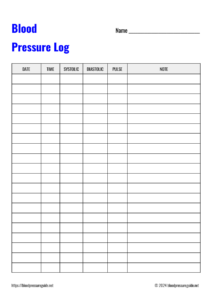
A blood pressure log sheet is a tool used to track and monitor an individual’s blood pressure readings over time. It typically includes spaces to record the date and time of each reading, as well as the systolic and diastolic blood pressure values.
| Formats | Fillable PDF, Excel, Word, Google Sheets and Numbers |
| Time in Templates | am/pm and 24hr |
| Metrics | Systolic/Diastolic, Heart Rate, Weight, Height |
| Suitable For | Hypertension And Low Blood Pressure Tracking |
| Templates | Plain Sheet | Large Print | BP & Weight | Calendar | Graph | Excel Chart |
| Last Updated | 2024 January |
Keeping a blood pressure log sheet can be helpful for individuals with hypertension or other medical conditions that affect blood pressure, as it allows them to track changes in their readings and identify any patterns or trends that may need to be addressed with their healthcare provider.
This minimalistic log sheet has date, time, sys, dia, pulse columns. Also it has handy space for your notes.

Time Format: 24hr
Google Docs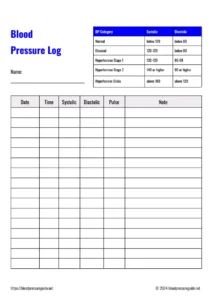
Time Format: 24hr with chart
Google Docs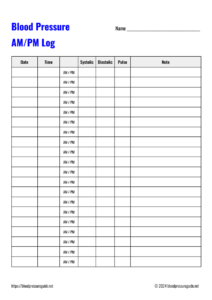
Time Format: am/pm
Google Docs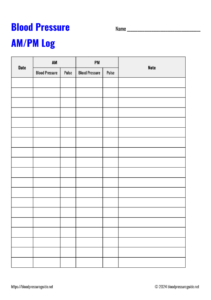
Time Format: am/pm alternative
Google DocsPlain and simple blood pressure log sheet with larger cells. It has date, time, sys, dia, pulse and notes columns.
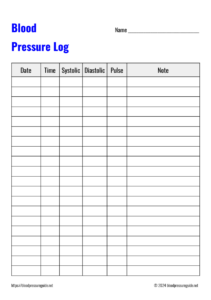
Time Format: 24hr
Google Docs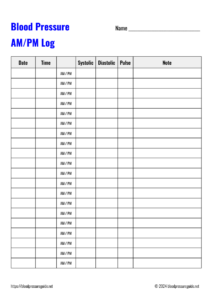
Time Format: am/pm
Google DocsBy maintaining a log sheet, individuals can also better understand how lifestyle factors such as diet, exercise, and stress may be impacting their blood pressure levels, and make adjustments as necessary to help manage their condition.
With these handy templates you can track your blood pressure and weight levels.
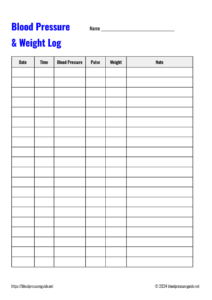
Time Format: 24hr
Google Docs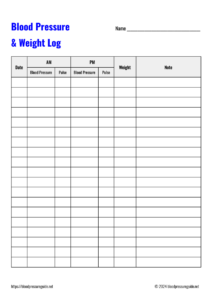
Time Format: am/pm
Google DocsOur log sheet templates come in various formats, including daily, weekly, and monthly trackers, allowing you to monitor your blood pressure over time.
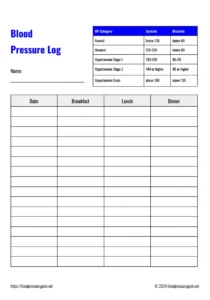
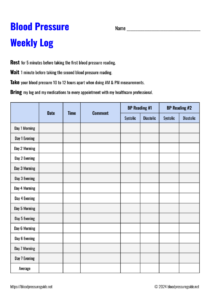
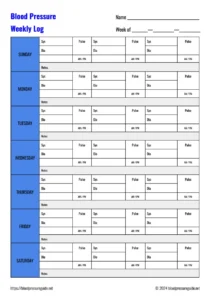
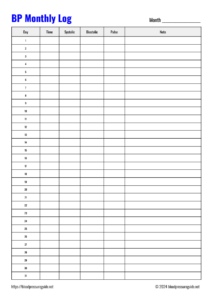
Time Format: 24hr
Google Docs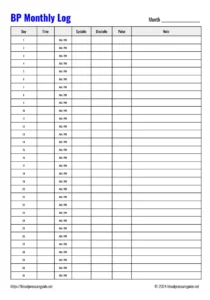
Time Format: am/pm
Google DocsBy consistently using our log sheets, you can identify patterns and trends in your blood pressure, empowering you to make informed decisions about your health.
Google SheetsThis special Excel template allows you to build chart from your blood pressure readings.
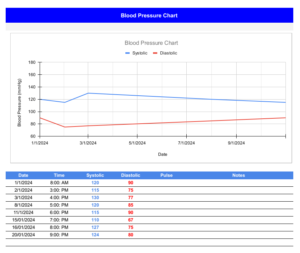
Download minimalistic Blood Pressure diary template from American Heart Association.
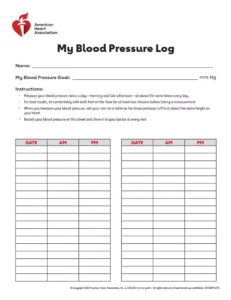
Download Blood Pressure journal template from British Hypertension Society and National Institute for Health Research.
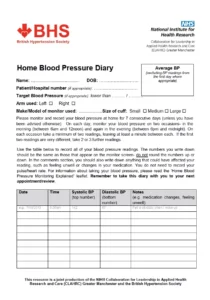
Download Blood Pressure log template from The Centers for Disease Control and Prevention.
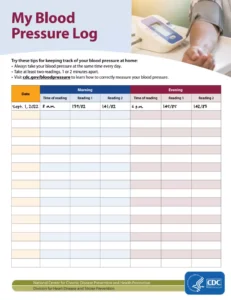
You can download our free Blood Pressure App to track your readings. It includes following features:
Manual & automatic blood pressure recording
Reminders and alerts
Personalized settings for multiple users
Visualization of blood pressure trends over time through graphs and charts
Select predefined standards such as AHA or ESH or your own limits for low/normal/high blood pressure
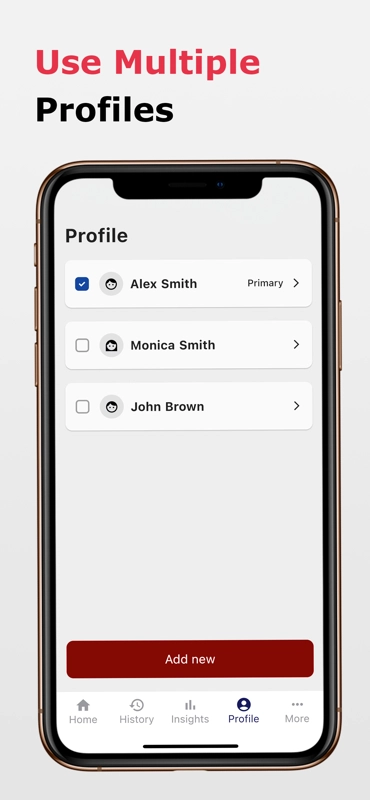
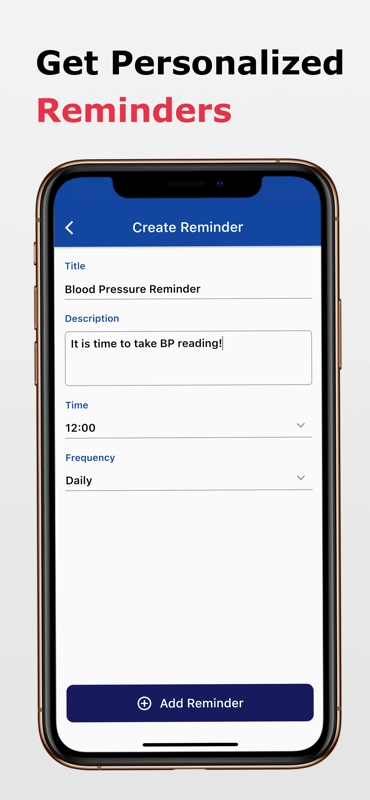
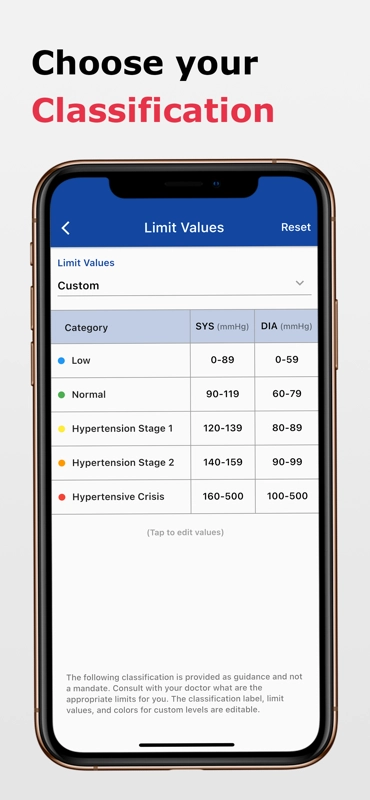
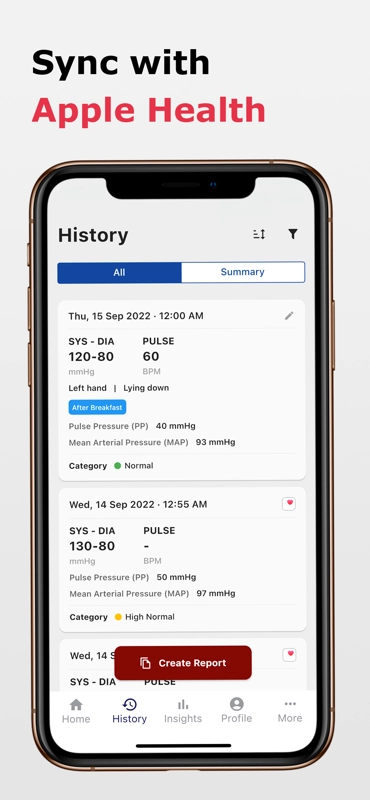
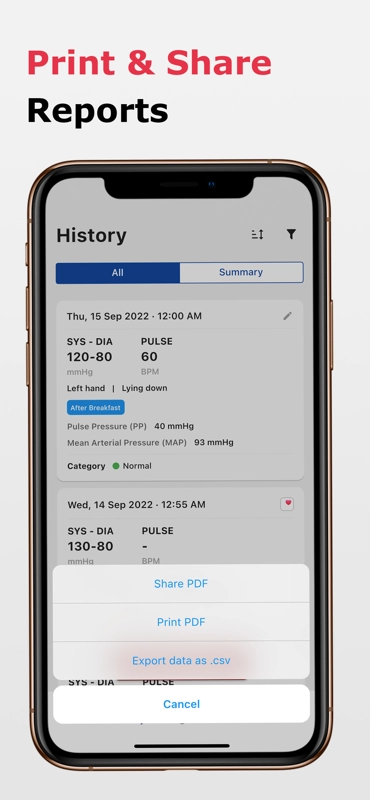
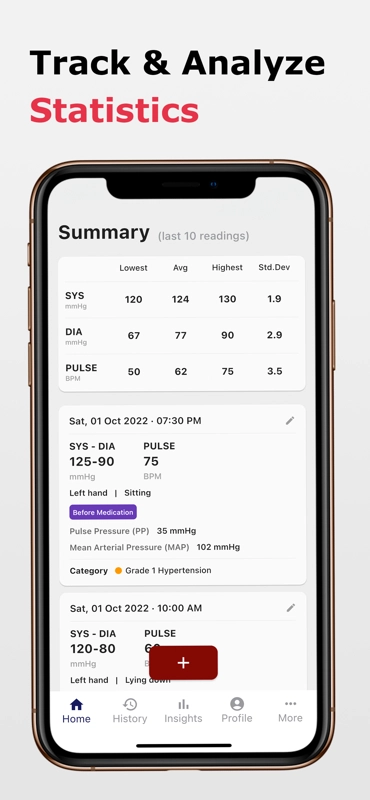
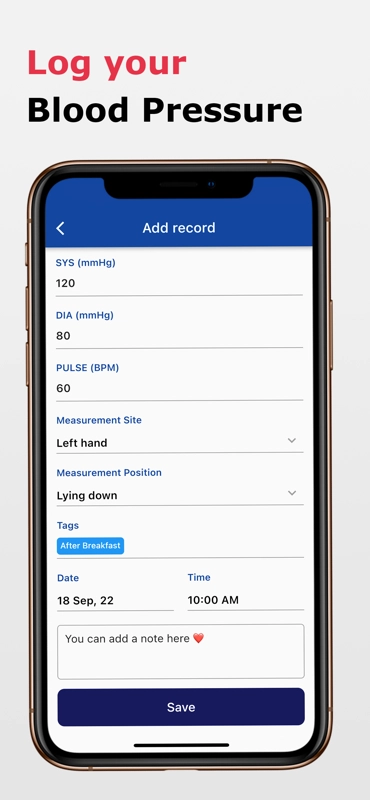


Just input your systolic (top number) and diastolic (bottom number) into this online calculator.
The key elements of a blood pressure log include:
Additional notes about factors that may have influenced the reading:
Using a blood pressure log is a straightforward process that involves consistent and accurate recording of blood pressure readings over time. Here are detailed instructions on how to use a blood pressure log:
Recording: Every time you take your blood pressure, record the date and time along with the systolic and diastolic blood pressure measurements in the log. Ensure the readings are accurate by following proper measurement techniques and using a well-calibrated blood pressure monitor.
Identify Influencing Factors: Note down any factors that might have influenced the reading. This could include physical activity, stress levels, caffeine intake, medication use, or any recent emotional or physical exertion. Understanding these factors can provide valuable context to the readings.
Document Your Condition: Include comments about how you were feeling at the time of each reading. Note if you were feeling particularly anxious, relaxed, tired, or unwell. This information can help identify patterns in blood pressure fluctuations.
Lifestyle and Medication: Keep track of any changes in your medication, lifestyle habits, or dietary modifications. Such changes can impact blood pressure levels, and documenting them can help identify patterns and triggers for fluctuations.
Regular Review: Regularly review the entries in the log to identify any trends or fluctuations in blood pressure. Discuss any noteworthy changes with your healthcare provider during your next visit.
Take it to Appointments: Bring your blood pressure log to your healthcare appointments. This can provide your healthcare provider with a comprehensive view of your blood pressure readings over time, allowing for better-informed decisions about your treatment plan.
By following these steps, you can effectively use a blood pressure log to monitor and track your blood pressure levels, setting the stage for better management of your cardiovascular health.
Firstly, it allows you to track and monitor your blood pressure levels over time, giving you a clear picture of any changes or trends. This can be crucial in identifying potential health issues or risk factors for conditions such as heart disease, stroke, or kidney disease.
Additionally, by keeping track of your blood pressure readings, you can provide your doctor with valuable information that can help them make more informed decisions about your treatment plan.
Finally, tracking your blood pressure can also be motivating, as it can help you see the positive impact of lifestyle changes or medication on your overall health. By maintaining a blood pressure log, you are taking an active role in managing your health and well-being.